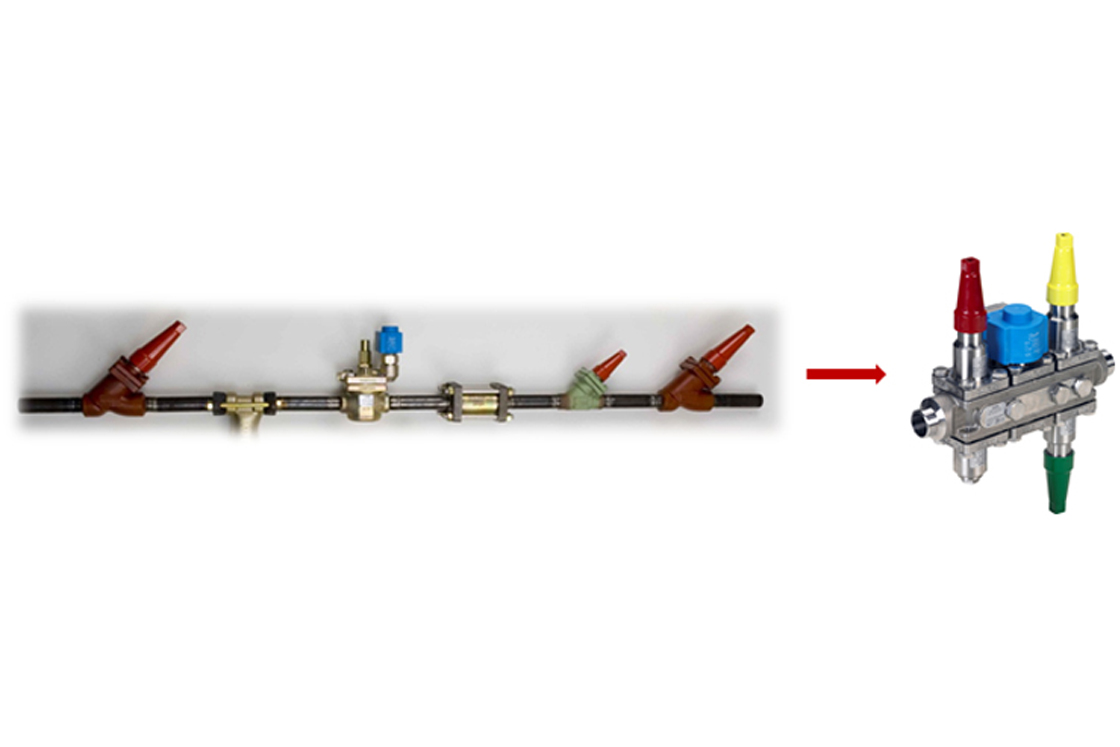How the Danfoss ICF valve station and the use of Cascade systems can increase safety in Industrial Refrigeration systems
Modern industrial production, storage and distribution would be impossible without extensive use of refrigeration. Ammonia (NH3) has long been the prevalent refrigerant in industrial refrigeration due to its high degree of efficiency, low environmental impact and affordability. Ammonia is commonly used in food processing facilities, dairies, breweries, meat processing plants and cold storage warehouses, where a large cooling demand is required.
Ammonia is a cost-effective and efficient refrigerant. The only drawback is its classification as a poisonous refrigerant that in case of leakage can be harmful to personnel and the food items that the refrigeration system was designed to protect.
The risk of leaks arises from many different sources, ranging from inadequate operating procedures or lack of training to failures in piping, welds or poor maintenance.
Due to its classification as a poisonous gas, design, construction and operation of ammonia refrigeration systems are governed by strict standards. Early-warning detection devices, efficient ventilation systems, emergency switch-off systems are among the typical measures implemented to limit the risk during operation.

